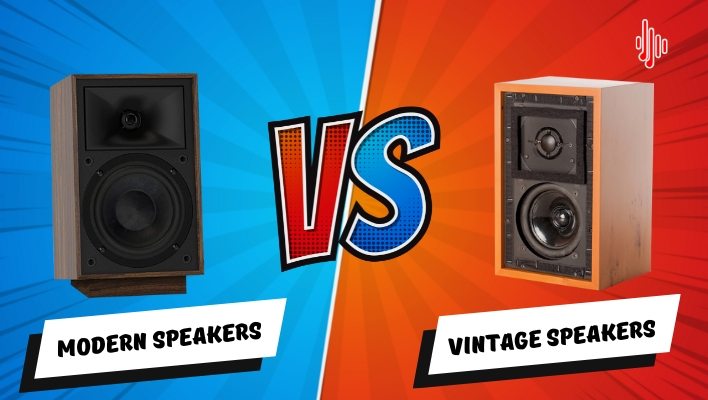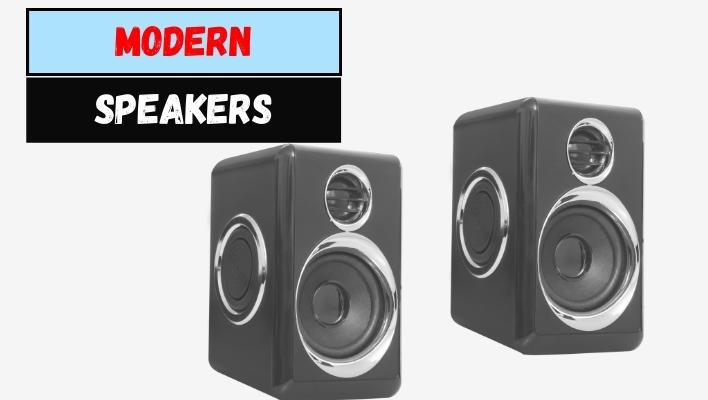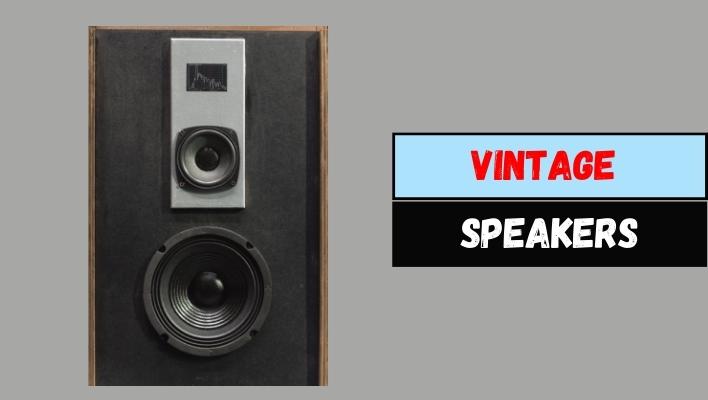If you are an audiophile like me, you are keen on the type of speakers you buy. The truth is that most modern speakers, despite the high price tag, cannot match the vintage speakers in terms of sound quality.
The market is filled with hundreds, if not thousands, of speakers that you can buy at a click of a button. However, it’s imperative to consider the speaker’s capabilities, manufacturer, and reputation to get value for money.
One of the questions our readers ask is whether vintage speakers are better than modern speakers. Do vintage speakers sound better than modern speakers?
One of the conceptions about vintage speakers is that they all produce better quality sound than modern speakers. This is not a mere myth, the manufacturers paid attention to detail and the main goal was to release a masterpiece into the market.
Except for a few, most manufacturers who used to make quality vintage speakers are no longer in business. The rarity of speakers from such manufacturers influences their prices, with some going for more than $3,000.
Apart from the exceptional sound quality that the best vintage speakers produce, most people buy them for their artistic value.

3 Differences between Modern Speakers and Vintage Speakers
There are glaring differences between modern speakers and vintage speakers. Knowing the differences will help you to pick one that suits your needs and preferences. Here is an overview of the three main differences to help you decide which type of speaker to buy.
Technology
Over the last two decades, the technology used to manufacture speakers has undergone tremendous changes. Modern speakers come with an array of settings that allow users to adjust the sound quality using a remote control or pressing the buttons on a control interface.
The vintage speakers are not technologically advanced and thus offer users limited options. That is, the options for changing the sound frequency are limited. This downside makes them unsuitable for some events, such as outdoor parties.
For example, the old speakers were designed to produce more bass than the modern speakers because, at the time, the music producers relied heavily on less bass-boosting technology. This technology enables vintage speakers to produce more powerful lows than modern speakers.
In addition, traditional technology makes it possible for listeners to notice the difference between double bass and upright bass in songs. This is one of the primary reasons why most people who grew up in the 50s are reluctant to buy modern speakers.
Not to throw too much shade on the modern speakers, it’s important to note that old recordings were made using analog musical equipment. Using analog technology instead of digital music equipment such as mixers ensured that the music quality was top-notch.
During your free time, compare the synth paths in the classic music produced in the 50s and 60s with modern-day songs. You will notice glaring differences between the tone to the quality of the sound. Notably, the composition of modern songs is different and not compatible with the design of vintage speakers. You will often hear weird sounds when you play them on a vintage style speaker.

Size & Design
The big vintage speakers were not designed for use in rooms with limited spaces. Over the years, the architectural design of homes has evolved to suit the limited land space in most estates. As a result, modern speakers and other electronics have a compact design that makes them suitable for an array of living spaces.
The design of vintage speakers is also different from modern speakers. The vintage speakers have a wooden cabinetry housing that absorbs more sound waves than the modern design speakers. The effect of the wooden housing is that the music takes longer to reach a steady volume when played.
In addition, the wooden material used to make vintage speakers made them unnecessarily big and heavy. It’s not easy to move them around the living room. Relocating to a new home with one is also tedious and stressful.
Energy Efficiency
In the 60s, climate change and global warming were considered a myth. Manufacturers were not keen on making planet-friendly speakers. There was also no legislation that required them to make environmentally friendly products.
Today, government and non-governmental organizations advocate for the production of green electronics. The green movement’s main goal is to create awareness of the need for sustainable use of the available natural resources.
As a result, modern speakers are fitted with energy-saving parts that lower their energy consumption. On the other hand, the old vintage speakers are not energy efficient as they consume a lot of power.

Are Vintage Speakers Any Good?
Although vintage speakers are not energy efficient and offer users limited control over the sound output, they are worth buying for their artistic value.
The sound quality is better than most modern speakers because of the great lengths manufacturers went to ensure that the final product was near perfect. The wooden housing, even though it results in the speaker consuming more power to reach a specific volume, it greatly improves the sound quality.
Final Verdict
The debate on whether vintage speakers are better than modern speakers is far from over. The answer to the question, which is better? largely depends on who you ask. People who grew up in the 50s and 60s and are audiophiles will opt for vintage speakers while modern audiophiles will go for modern speakers.
Thus, it’s safe to say the choice of the type of speaker depends on one’s personal taste and preferences. The seniors consider sound quality while the younger generation gravitates towards modern speakers due to their unique features such as more control over the frequency and energy efficiency.
